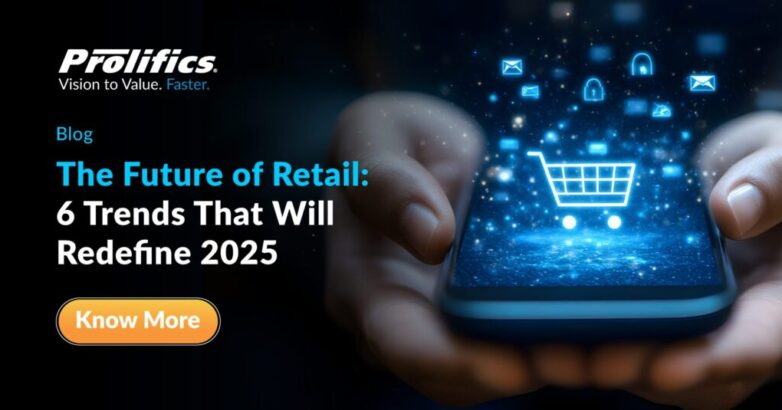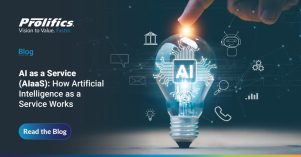As 2025 approaches, retailers find themselves at the intersection of evolving consumer expectations and rapid digital transformation. Cutting-edge technologies and a demand for hyper-personalized experiences are reshaping the retail landscape.
To stay competitive, businesses must embrace change with agility and innovation. The future of retail 2025 is driven by a blend of technology, sustainability, and customer-centricity, making it essential for brands to stay ahead of emerging retail trends 2025.
According to IDC FutureScape: Worldwide Future of Customer Experience 2025 Predictions — Asia/Pacific (Excluding Japan) Implications, IDC stresses AI’s integral role in providing highly personalized experiences for customers to help the region’s businesses differentiate themselves from competitors. This is highlighted in the prediction that by 2028, consumers will spend $32 billion via AI agents that run independently on their smartphones to programmatically shop for goods, services, and consider purchases.
Below are six pivotal retail trends for 2025 that will redefine the sector—and how forward-thinking companies like Prolifics are helping retailers thrive.
1. AI-Powered Personalization at Scale
Retailers have long pursued personalization, but AI in retail is taking it to new heights. With AI-driven customer data platforms, businesses can create hyper-personalized experiences across every channel—online and in-store.
From AI-curated product recommendations to dynamic pricing and tailored loyalty offers, personalization is becoming real-time, predictive, and customer-focused.
According to the report IDC FutureScape: Worldwide Retail Predictions 2025 — Asia/Pacific (Excluding Japan) Implications, by 2026, 90% of retail tools will embed AI algorithms. Over 30% of these algorithms will use standalone AI or modular, agnostic AI models that can be swapped out for suitable retail-specific models. As retailers integrate GenAI into their content strategies, key considerations include ensuring data accuracy, seamless system integration, and adherence to brand identity and local market nuances.
Prolifics’ Take:
We help retailers leverage Generative AI and ML to build smart personalization engines that use behavioral, transactional, and contextual data to deliver tailored experiences that boost engagement and drive conversions.
2. Composable Commerce Takes Center Stage
The era of rigid retail platforms is ending. Composable commerce—a modular, best-of-breed approach—allows retailers to choose, mix, and integrate tools for maximum agility.
Retailers can now combine headless CMS, payment gateways, and inventory systems to adapt quickly to market changes and customer needs.
According to Gartner, global AI software spending in retail will increase 15.8% in 2024, reaching $12.5 billion by 2027—driven by automation and real-time insights.
Prolifics’ Take:
With our Integration and API Strategy solutions, we enable retailers to seamlessly adopt composable architectures. This ensures faster time-to-market and the ability to respond dynamically to market trends and consumer behavior.
3. Digital Store Associates Enhance In-Store Experiences
In 2025, digital store associates will be critical in merging the online and offline experience. Equipped with AI-powered mobile tools, store associates can check inventory, view customer preferences, and make smart upsell recommendations.
As per Gartner research, global AI software spending in the retail market is forecast to increase 15.8% in 2024 to $7.8 billion and reach $12.5 billion by 2027, with a five-year CAGR of 16.5%. Technology and service providers can use this presentation to support retail industry planning activities for 2024 and beyond.
Prolifics’ Take: Our AI-powered automation and mobile workforce solutions empower in-store staff with real-time insights, helping them deliver next-level service while optimizing store operations and reducing training overhead.
4. Sustainable Retail and Ethical Commerce Take Priority
Today’s consumers expect brands to demonstrate sustainability and ethical practices. Retailers must track and disclose their environmental impact, supply chain transparency, and product-level emissions.
Worldwide Retail Product Sourcing, Fulfillment and Sustainability Strategies advisory service arms retail companies with the specific knowledge necessary to globally select, deploy, and optimize a long list of retail-specific technologies and processes including product development and sourcing, demand forecasting and management, last-mile order/inventory management and orchestration, omni-channel fulfillment (including ecommerce, stores, micro-fulfillment, warehouses), sustainability/ESG, returns/repair/recycle/rentals, and track and trace (RFID/blockchain/IoT).
Prolifics’ Take:
We deliver intelligent supply chain analytics and ESG reporting solutions that help retailers meet sustainability goals, ensure compliance, and earn customer trust in sustainable retail 2025.
5. Phygital Retail Experiences Become the Norm
The fusion of physical and digital experiences—commonly known as ‘phygital’—is creating immersive, omnichannel retail journeys. Think AR try-ons in stores, app-based wayfinding, and smart kiosks. In 2025, the ability to unify these experiences across platforms and channels will define retail leaders.
Prolifics’ Take:
With expertise in cloud migration, data integration, and real-time analytics, we help brands deliver immersive phygital experiences that build loyalty and increase footfall.
6. AI-Driven Supply Chain Resilience
Unpredictability in global supply chains—from geopolitical tensions to climate disruptions—demands smarter, more responsive systems. AI-driven supply chain and ML are helping retailers predict demand, optimize inventory, automate procurement, and react swiftly to disruptions. In 2025, supply chain resilience will be driven by intelligent decision-making.
IDC research shows that companies adopting AI-driven supply chain models focused on differentiation and rapid response are outperforming competitors. By 2028, AI-powered agents will redefine premium retail interactions with predictive personalization and frictionless service.
Prolifics’ Take:
Our advanced data and AI solutions provide real-time visibility and predictive insights, enabling retailers to enhance agility, reduce costs, and meet customer expectations with confidence.
Conclusion
2025 marks a transformative year for retail. Success will depend on how effectively retailers adapt to changing consumer behavior, technological advances, and sustainability expectations.
The future of retail 2025 belongs to those who:
- Harness the power of AI in retail
- Adopt composable architectures
- Lead with sustainability
- Build resilient, data-driven operations
At Prolifics, we help retailers design future-ready strategies powered by data, automation, and intelligent integration. Together, we enable brands to lead with purpose and innovation in the fast-evolving retail landscape.
Ready to future-proof your retail strategy?
Connect with Prolifics today to reimagine your retail experience for 2025 and beyond.




